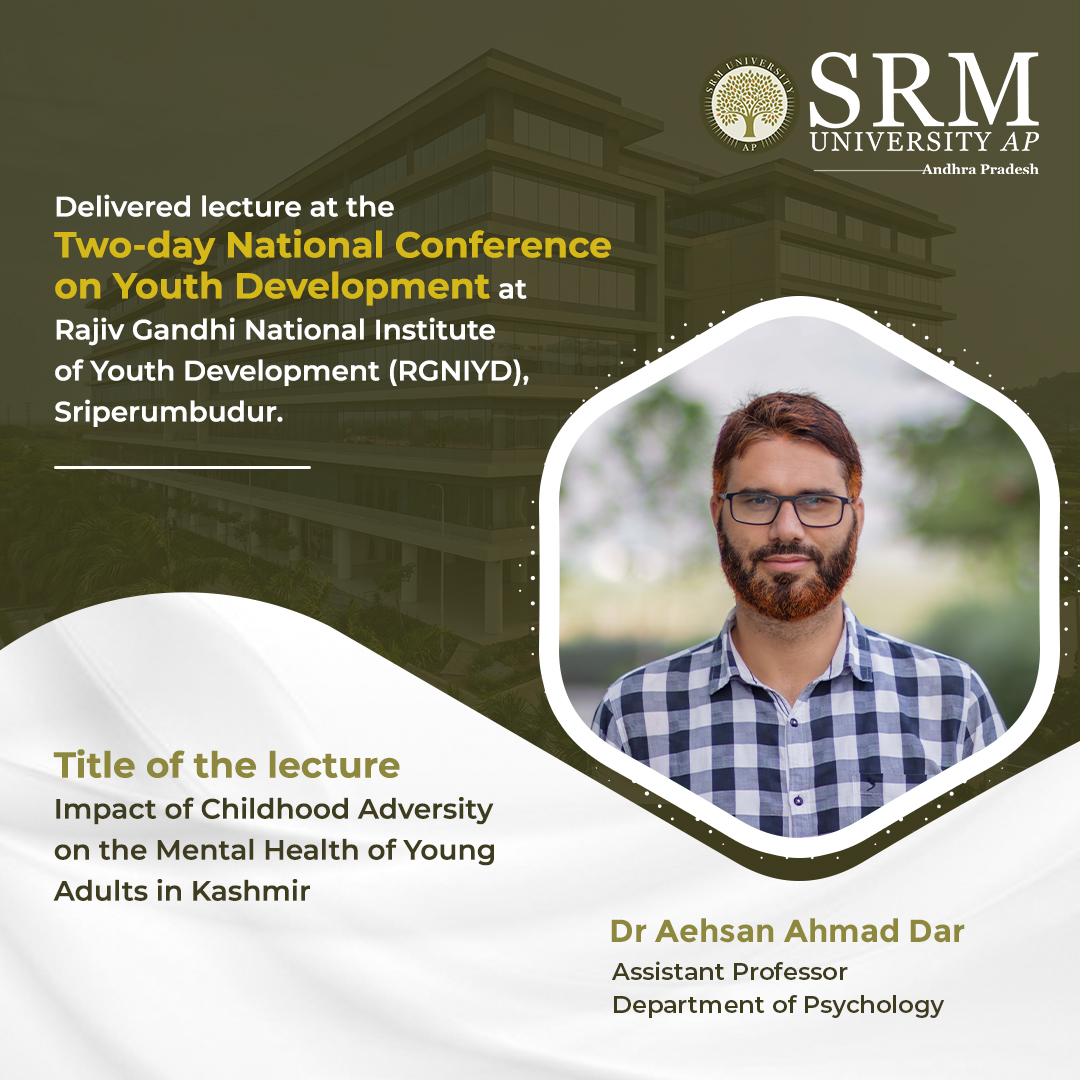 Dr Aehsan Ahmad Dar, Assistant Professor, Department of Psychology, delivered a lecture titled Impact of Childhood Adversity on the Mental Health of Young Adults in Kashmir at the Two – day National Conference on Youth Development held on March 24 and 25, 2023. Youth in the 21st Century: Prospects and Psychosocial Challenges was the theme of the conference, which was organised by the Department of Social Work and Department of Applied Psychology, Rajiv Gandhi National Institute of Youth Development (RGNIYD), Sriperumbudur, Tamil Nadu, in collaboration with ICMR – NIRT, Chennai.
Dr Aehsan Ahmad Dar, Assistant Professor, Department of Psychology, delivered a lecture titled Impact of Childhood Adversity on the Mental Health of Young Adults in Kashmir at the Two – day National Conference on Youth Development held on March 24 and 25, 2023. Youth in the 21st Century: Prospects and Psychosocial Challenges was the theme of the conference, which was organised by the Department of Social Work and Department of Applied Psychology, Rajiv Gandhi National Institute of Youth Development (RGNIYD), Sriperumbudur, Tamil Nadu, in collaboration with ICMR – NIRT, Chennai.
Abstract of the Lecture
The study examines the impact of Adverse childhood experiences (ACEs) on mental health among young adults in Kashmir. A cross-sectional research design was followed to study the effect of ACEs on the mental health of Kashmiri youth by employing a multi-stage sampling method. Data were collected from 693 research participants who were studying in different colleges and universities in Kashmir, with the help of the Adverse Childhood Experiences scale and Mental Health Inventory (MHI-18). Findings revealed that various adversities during childhood, including psychological abuse, physical abuse, contact sexual abuse, household substance abuse, violent household treatment of mothers and fathers, household mental illness, and household criminal behaviour, had a significant impact on the mental health of Kashmiri youth in terms of increased anxiety, depression and loss of behavioural control and decreased positive affect.
Practical Implementation of the Findings
ACEs are traumatic events that individuals under 18 have experienced. Various individual, family, and community factors can affect a child’s likelihood of experiencing ACEs, and it causes long-term risks for mental health with the potential to carry over beyond the present generation. ACEs are linked to chronic health problems, mental illness, and adult risk-taking behaviours. There is a “dose-response relationship” between ACEs and health outcomes. Therefore, findings suggest advocating early targeted interventions to reduce ACEs and their impact on young people’s mental health in Kashmir. There is a need to design efficient measures, to enhance ACE resilience programs and ‘trauma-informed’ approaches to tackle the longer-term impact of ACEs on health and wellbeing.

